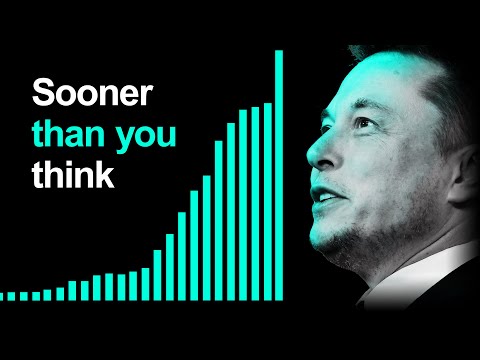Tesla's advancements in Full Self-Driving technology position it as a formidable competitor in the robo taxi market, potentially overshadowing Waymo's current successes and highlighting significant challenges for the latter
Questions to inspire discussion
Tesla's FSD Advantage
🚗 Q: How does Tesla's FSD approach differ from Waymo's?
A: Tesla uses a generalized solution with camera-based FSD, while Waymo relies on pre-mapped routes, high-definition mapping, and laser sensors.
🌎 Q: What gives Tesla's FSD a scaling advantage?
A: Tesla's approach can scale rapidly worldwide due to its generalized solution, unlike Waymo's limited availability in few specific cities.
Robotaxi Market Disruption
💰 Q: How might Tesla disrupt the robotaxi market?
A: Tesla plans to convert millions of existing vehicles to robotaxis with a software update, potentially outpacing Waymo's fleet of 600 cars.
🚕 Q: What competitive edge does Tesla have in the robotaxi market?
A: Tesla's robotaxis are expected to be more elegant, sleek, and affordable compared to Waymo's sensor-heavy vehicles.
Waymo's Challenges
📉 Q: What financial challenges does Waymo face?
A: Waymo's business model is currently unprofitable, with billions in losses, potentially leading to bankruptcy if unable to compete with Tesla's approach.
🗺️ Q: Why might Waymo's mapping-dependent approach be problematic?
A: Waymo's reliance on high-definition mapping and specific sensors makes it less flexible and more expensive to scale compared to Tesla's camera-based system.
Key Insights
Technological Advantage
🚗 Tesla's generalized FSD solution demonstrates superior adaptability compared to Waymo's pre-mapped approach, enabling operation on unmapped dirt roads without reliance on high-definition mapping or laser sensors.
🌎 Tesla's software-based upgradability allows its millions of existing vehicles to potentially become robo-taxis through a simple update, contrasting with Waymo's limited fleet of 600 specialized vehicles.
Market Potential
📈 While Waymo has gained significant market share in San Francisco with a small fleet, Tesla's ability to manufacture 600 vehicles in hours positions it for rapid scalability across multiple global markets.
💰 Tesla's robo-taxis are projected to be more cost-effective and aesthetically appealing than Waymo's "ugly, function-only, expensive" autonomous vehicles, potentially disrupting the industry.
Regulatory and Scaling Challenges
🏙️ Waymo's operations are currently limited to select cities like Phoenix, Los Angeles, and San Francisco, whereas Tesla's solution could potentially scale rapidly worldwide with regulatory approval.
⚖️ Tesla's path to market dominance hinges on regulatory approval for its FSD technology, which could enable it to quickly convert its vast fleet into robo-taxis and overtake Waymo's market share.
#Vehicles #Tesla #Waymo
XMentions: @Tesla @HabitatsDigital @StevenMarkRyan
Clips
-
00:00 🚗 Tesla's FSD demo in Austin contrasts with Waymo's struggles, showcasing Tesla's potential to disrupt the robo taxi market despite current challenges.
- Tesla's robo taxis are launching in Austin, while FSD Supervised faces challenges on a mountain dirt road in China, highlighting the risks involved.
- The demonstration highlights the confidence in Tesla's FSD software compared to Waymo's, as the supervisor hands off the wheel while the passenger appears anxious.
- Waymo has rapidly gained market share in San Francisco's robo taxi sector with just over 600 cars, highlighting the potential disruption Tesla could cause once it deploys its millions of capable vehicles.
-
03:25 🚖 Waymo's 10 million rides highlight its market growth, but Tesla's rapid scaling of autonomous vehicles positions it as a more efficient solution.
- Waymo has achieved a milestone of 10 million rides with its driverless taxi service, indicating its growing presence in the market.
- Waymo has rapidly increased its market share and ride numbers despite higher costs, but Tesla's ability to scale its autonomous vehicles quickly positions it as a more generalized and efficient solution for autonomy.
-
05:05 🚗 Autonomous vehicles are rapidly transitioning from niche innovations to mainstream adoption, posing a significant threat to competitors like Waymo with their less appealing designs.
-
06:08 🚗 Tesla's FSD technology outperforms Waymo's limited, pre-mapped approach, highlighting significant scalability issues for Waymo.
- Tesla's FSD technology has achieved a generalized solution for autonomy, allowing it to operate in diverse environments, unlike Waymo's limited capabilities.
- Waymo's reliance on high-definition pre-mapping for its vehicles limits its scalability and deployment, resulting in only a small number of operational vehicles in a few cities after a decade.
-
07:43 🚗 Tesla's optimistic future may mask looming bankruptcy as it struggles to compete with Waymo's lead in the robo taxi market.
- The co-CEO's optimistic statement about future progress may actually foreshadow impending bankruptcy as competition intensifies.
- Tesla plans to launch its robo taxi service soon, but Waymo's significant lead and ongoing expansion into new cities highlight its challenges in achieving profitability and market dominance.
-
09:20 🚗 Waymo's fleet in San Francisco is criticized for its unappealing design and limited accessibility, while Tesla is expected to quickly overcome similar initial challenges.
-
10:14 🚗 Tesla's affordable self-driving strategy exposes serious challenges for Waymo, which struggles with safety and high costs.
- Many companies have abandoned self-driving car projects due to safety issues, highlighting significant problems with Waymo.
- Tesla's cost-effective approach to autonomous cabs poses a significant threat to Waymo, which relies on expensive technology and human feedback.
-------------------------------------
Duration: 0:12:26
Publication Date: 2025-06-02T11:04:31Z
WatchUrl: https://www.youtube.com/watch?v=i6pgX0g-_hA
-------------------------------------

